by Clayton Walnum

As reported in the first part of this omnibus series, Yes made out pretty well with the reviewers during the heyday of progressive rock, scoring their share of four-star reviews in the mainstream music press. If you find it hard to imagine a time when magazines like Rolling Stone raved about Yes, be assured that it actually happened. The adulation, however, didn't last long. Once progressive rock began to fall out of favor, magazines like Rolling Stone turned their backs on Yes (for the most part, anyway). You have to be cool to sell magazines, you know, and by 1974, prog was starting to lose its coolness in the eyes of the mainstream.
And so our story continues...
NOTE: Because I consider Rolling Stone magazine to be among the most credible of the mainstream music reviewers, I'll be including quotes from their reviews of Yes' albums. This isn't to say that I agree with everything Rolling Stone has to say (hardly!), but it's always good to get the prog "outsider"'s viewpoint. For the complete reviews, point your browser to www.rollingstone.com.
[By the way, there's a short review of the remastered version of 90125 in the April 15, 2004 issue of RS (celebrating 50 years of Rock) -ed.]
Tales From Topographic Oceans (1974)
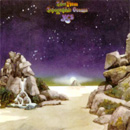 Tales From Topographic Oceans has always been a favorite of mine, especially the first track, "The Revealing Science Of God." At the time Tales was released, I was at the height of my Yes frenzy, which goes far in explaining why this album does so much for me, but not so much for many other progressive-rock fans. Rick Wakeman himself hated this album and, indeed, even left the band because he couldn't tolerate the direction Yes was taking. Another black mark against Tales (at least in the eyes of the inflexible) was the loss of Bill Bruford on drums, who was replaced by the more soulful, but less technical, Alan White.
Tales From Topographic Oceans has always been a favorite of mine, especially the first track, "The Revealing Science Of God." At the time Tales was released, I was at the height of my Yes frenzy, which goes far in explaining why this album does so much for me, but not so much for many other progressive-rock fans. Rick Wakeman himself hated this album and, indeed, even left the band because he couldn't tolerate the direction Yes was taking. Another black mark against Tales (at least in the eyes of the inflexible) was the loss of Bill Bruford on drums, who was replaced by the more soulful, but less technical, Alan White.
In spite of my love for this album, I have to admit to some song bloat. I could easily do without the entire first half -- a monotonous nine minutes to be sure -- of the second piece, "The Remembering." (Hint: If you burn a CD that leaves off the aforementioned nine minutes, the entire album will fit on a single CD!) A lot of the free-form noodling, especially in the third piece, "The Ancient Giants Under The Sun," could have been cut down, as well.
If Tales had been released with just the first and fourth pieces (both side-long compositions), it would probably have been hailed as a triumph. (I would have hated to have missed out on the other stuff, though.) "The Revealing Science Of God" is, in my opinion, solid Yes in the "Close To The Edge" vein, although maybe more accessible. Expect lots of great melodies, layered harmonies, inventive guitar work, and some kick-ass soloing by Rick Wakeman. The fourth piece, "Ritual," features the magnificent "Nous Sommes Du Soleil," boasting some of Jon Anderson's most memorable and gorgeous melodies.
Rolling Stone's love affair with Yes ended with this album, as can be seen by this quote from their review:
"This album is too long. Not only does the band kill time with psychedelic doodling but the solo numbers are drawn out .... Musically, the album suffers from over-elaboration which has generated both the apparently desired complexity and the almost unavoidable mechanical feel.... Tales does have some good moments. Rick Wakeman turns in another stellar performance as Lord-of-the-mellotron, and other ivories....[but] the music of Tales leaves the listener grappling for some perspective."
Relayer (1974)
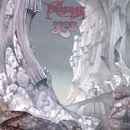 Most people would agree, I think, that Relayer was Yes at their most experimental. A disillusioned Rick Wakeman had left the band after Tales From Topographic Oceans, and keyboard whiz Patrick Moraz stepped in to take over the ivories. Jon Anderson had already put together what was to be the major piece for the album, "The Gates Of Delirium," an opus every bit as sophisticated as "Close To The Edge," but darker, more aggressive, and often downright noisy. "Gates" can be a tough piece to get into, but is well worth the effort, containing some amazing arrangements and playing, as well as Yes's flirtation with the nearly avant-garde.
Most people would agree, I think, that Relayer was Yes at their most experimental. A disillusioned Rick Wakeman had left the band after Tales From Topographic Oceans, and keyboard whiz Patrick Moraz stepped in to take over the ivories. Jon Anderson had already put together what was to be the major piece for the album, "The Gates Of Delirium," an opus every bit as sophisticated as "Close To The Edge," but darker, more aggressive, and often downright noisy. "Gates" can be a tough piece to get into, but is well worth the effort, containing some amazing arrangements and playing, as well as Yes's flirtation with the nearly avant-garde.
The album Close To The Edge still has the advantage over Relayer, though, due to its stronger second side (speaking in terms, of course, of the original vinyl release). Relayer's "Sound Chaser" and "To Be Over" are enjoyable compositions, yes, but don't approach the solid writing and playing of "And You And I" and, to a lesser degree, "Siberian Khatru" from Close To The Edge. In any case, Relayer's experimental approach guaranteed that any remaining Yes fans in the mainstream press would join the growing pack of naysayers. Only prog-obsessed listeners could appreciate "The Gates Of Delirium" for the genius it was.
Says Rolling Stone:
"Relayer may exhaust even the devoted. Singer Jon Anderson's words plumb new depths of turgidity.... Relayer, despite occasional enjoyable interludes, is an excessive, pretentious and ill-conceived album. The folly of Yes's extreme approach is becoming only too apparent."
Going For The One (1977)
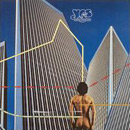 After Relayer, Yes took some time off ... a lot of time. Yes was gone so long that many Yes fans (myself among them) believed the band had broken up. Why would anyone have expected them to stick around? Yes could no longer fill the large venues, and they were being crucified in the reviews. After a reliable release schedule of one and sometimes two albums a year, three years went by without a peep from prog's foremost standard bearer. Then Going For The One appeared on record racks.
After Relayer, Yes took some time off ... a lot of time. Yes was gone so long that many Yes fans (myself among them) believed the band had broken up. Why would anyone have expected them to stick around? Yes could no longer fill the large venues, and they were being crucified in the reviews. After a reliable release schedule of one and sometimes two albums a year, three years went by without a peep from prog's foremost standard bearer. Then Going For The One appeared on record racks.
Going For The One represented a fresh start for Yes. First was the album cover, whose photographic collage took a more mainstream approach. No Roger Dean fantasy worlds this time around. Then there was the music. The title song, "Going For The One," was a kind of cross between "Siberian Khatru" and boogie blues, whereas "Parallels," a stripped down song of simple construction, foreshadowed the type of music -- a pop/prog hybrid -- the band would develop routinely later down the road. Oh, did I mention that keyboard god Rick Wakeman was back in the band?
Personally, I like this album a lot, but don't think of it as a high point in Yes's career -- with two exceptions. The first is the poignant and gorgeous "Turn Of The Century." I never get sick of this track. Second is the amazing "Awaken," the only Yes opus on the album (clocking in at nearly 16 minutes), and still a concert mainstay. "Awaken" was the Yes that the fans remembered from the days of Close To The Edge, rich prog laden with well-developed melodies, intricate instrumentation, and a climactic ending. On Going For The One, Yes was trying to please everyone, both their detractors and their fans.
Even Rolling Stone seemed to reconsider the band, as seen from this quote:
"Going For The One reverses [the band's entropy] in a fascinating move that ties the band even more closely to Zeppelin. The title track is the most vital piece of music Yes has recorded since The Yes Album....Going For The One takes the right step toward down-playing Anderson's conceptual stranglehold on the band."
Tormato (1978)
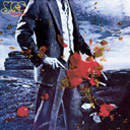 Yes's fresh start didn't last long. With Tormato, not only did Yes again lose the ground they had gained with music reviewers, they also lost a lot of fans. In fact, some said that the name of the album, as well as the splattered vegetable on the cover, was a veiled comment on what even the band thought of the music. That, of course, is absurd. If Yes has disliked the album that much, they never would have released it. One has to agree, though, that the name and cover were an unfortunate choice. The players on this release were the classic line-up of Jon Anderson, Chris Squire, Steve Howe, Alan White, and Rick Wakeman.
Yes's fresh start didn't last long. With Tormato, not only did Yes again lose the ground they had gained with music reviewers, they also lost a lot of fans. In fact, some said that the name of the album, as well as the splattered vegetable on the cover, was a veiled comment on what even the band thought of the music. That, of course, is absurd. If Yes has disliked the album that much, they never would have released it. One has to agree, though, that the name and cover were an unfortunate choice. The players on this release were the classic line-up of Jon Anderson, Chris Squire, Steve Howe, Alan White, and Rick Wakeman.
Tormato may have its share of clunkers, but it also has some great moments. Personal favorites of mine from this album include the opening track, "Future Times/Rejoice," with its very cool wah-wah bass line, stirring synth solos, and trademark Yes harmonies. Another favorite is "Release, Release," which is the kind of song that leads to speeding tickets on the highway and is probably the closest thing to rock-and-roll Yes has ever done. A real toe-tapper. Finally, "On The Silent Wings Of Freedom" is a red-hot number, with another driving wah-wah bass line (in fact, the song starts with a bass solo; Squire is the star here) and a multi-part arrangement.
Low on my ratings scale are "Don't Kill The Whale" and the very corny "Circus Of Heaven." Still, Tormato deserves more respect than it's been given over the years. Give it another chance, and you may be surprised. This is a good album.
Rolling Stone, of course, hated it and had this to say:
"For the most part, [Tormato] is as squishy as vocalist Jon Anderson's soft-headed lyrics... Progressive? Hardly. Call it regressive rock.... Whereas Jon Anderson appears always to be striving for the eccentric effect (and Rick Wakeman to be stooping to a hackneyed one), bassist Chris Squire is still emotionally as well as aurally affecting ... he's in an entirely different league from that of his cohorts. If they had his imagination, Tormato wouldn't be rotten."
Drama (1980)
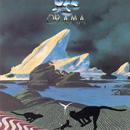 Depending on your definition of what makes a Yes album, the band was to vanish again for two or five years. Explain, you say? Drama appeared two years after Tormato, but Jon Anderson and Rick Wakeman had both left the band, replaced by Trevor Horn on vocals and Geoff Downes on keyboards (collectively known as The Buggles, the group whose song "Video Killed The Radio Star" was the first video to ever air on MTV, perhaps a dubious honor). Is it possible to be Yes without Anderson? A lot of people didn't think so and discounted this album as a throw-away. This is unfortunate, because Drama is one great album.
Depending on your definition of what makes a Yes album, the band was to vanish again for two or five years. Explain, you say? Drama appeared two years after Tormato, but Jon Anderson and Rick Wakeman had both left the band, replaced by Trevor Horn on vocals and Geoff Downes on keyboards (collectively known as The Buggles, the group whose song "Video Killed The Radio Star" was the first video to ever air on MTV, perhaps a dubious honor). Is it possible to be Yes without Anderson? A lot of people didn't think so and discounted this album as a throw-away. This is unfortunate, because Drama is one great album.
Drama seemed to be an attempt by the remaining band members to bring Yes back to the earlier, happier days of The Yes Album and Fragile. The cover by Roger Dean was in a more modern style, depicting, if not a fantasy landscape, at least a scene from an exotic locale in the real world. The music featured six "short" tracks -- by which I mean there were no side-long opuses -- which were strong with accessible, but still complex arrangements. Trevor Horn sounds so similar to Jon Anderson that I'm willing to bet that casual fans didn't even notice the difference.
What sets Drama off from other Yes albums, besides the unusual roster of musicians, is the metal edge on many of the songs. The first track, "Machine Messiah," boasts such heavy, distorted guitar that it's hard to believe that Steve Howe is still massaging the frets! Lots of good songs here.
Rolling Stone gives Drama a rating of one star. What a surprise!
90125 (1983)
Three long years later, Yes finally reemerged, again surprising fans who assumed the band had broken up amid bickering and endless legal battles. No one, including the band members, seemed to know who Yes was anymore. At one point, two versions of Yes toured simultaneously. But with 90125, Yes truly reinvented themselves, and successfully to boot. In fact, this album includes Yes's most popular song ever, "Owner Of A Lonely Heart."
The band found itself in yet another new incarnation. Although Jon Anderson was back, Steve Howe was gone, replaced by Trevor Rabin, a man whose pop sensibilities were probably more responsible for the new Yes sound than anyone else. Also gone was Rick Wakeman (again!), replaced, in a surprise move, by original keyboardist Tony Kaye who had played on the albums Yes, Time And A Word, and The Yes Album. (Steve Howe and Geoff Downes had left to form the supergroup, Asia, with ex-King Crimson vocalist John Wetton and ex-ELP drummer Carl Palmer.)
90125 bursts with catchy pop tunes with a progressive edge. Even those disappointed in Yes's near abandonment of progressive rock had to admit that "Owner Of A Lonely Heart," -- a terrific tune, as addictive as it is unusual -- did much to bring the drab radio of the time to life. Two other great tunes that caught the ears of listeners of the time were "Leave It" and "It Can Happen."
In a three-star review, the fickle reviewers at Rolling Stone decided to hop back on the bandwagon:
"'Owner Of A Lonely Heart' does not sound like the Yes of old. With its supple, understated dance beat, kaleidoscopic shifts in instrumental texture and notable lack of pseudo-classical overkill, it seems too hip, too street-smart for a band whose idea of a pop song was once something as rococo as 'Roundabout.' ... Although 90125 occasionally falls back on old tricks, as in 'Cinema' and the overblown 'Our Song,' most of the album is surprisingly spritely and poppish."
Stay tuned for the final installment of "Tales from the Edge," in which our heroes continue to straddle the boundary between pop and prog.
Links: Rolling Stone, Led Zeppelin, Asia, King Crimson, John Wetton, ELP, Carl Palmer
Copyright © by ProgressiveWorld.net All Right Reserved.
Published on: 2004-04-04 (5785 reads)

